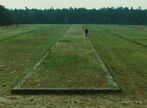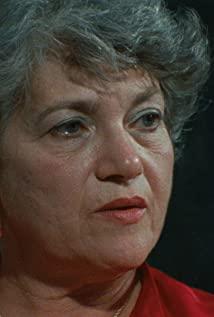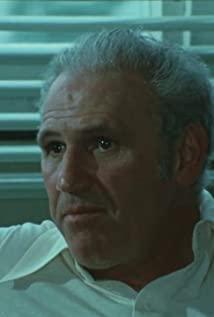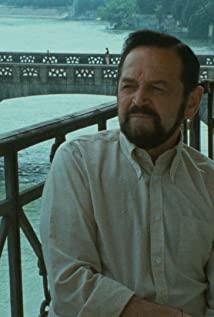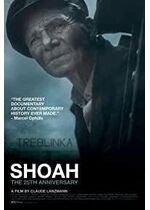-
Hans 2022-11-03 11:58:03
Compared to the narratives of survivors and executioners and bureaucrats, what bothered me more was the part of the interview with the residents of the small Polish town of Graber. When asked if she missed the Jews, an old lady said, "Of course, they are good. Jews". This is one of the true faces of history. Next door to the atrocity is a face of Zhang Muran, dumb and lucky (schadenfreude). 252:40...
-
Justus 2022-10-25 14:10:33
Respectable subject matter, nine hours in length, can only be respected enough to add one...
-
Alex 2022-10-23 16:57:43
I just remember seeing a meal at the farm in the middle of the evening at 1:00...
-
Colten 2022-10-21 10:01:55
1. Everyone has a close-up of silence for a few seconds after the interview. 2. During the interview, the camera was pushed and pulled skillful. Residents, the third interview with experts and the empty mirror and narration are more...
-
Clinton 2022-10-17 18:10:36
The longest and most boring movie I have ever seen. It lasted nine and a half hours, documentaries, heavy themes, multiple languages, interviews, and the worst part was that I didn't wear glasses at the time. But I still recommend it, it's still painful. In the evening, he also participated in Lanzman's meeting. Seventy-nine-year-old, quick thinking and torch-eyed. He called this film "that...
-
Tabitha 2022-10-15 09:17:49
Difficult to read several times. Sure enough, every screening of this masterpiece is like a funeral. The film also became one of the most successful naming events in film history, as the massacre became known as "Shoah" in Europe and the United States because of its appearance. The director said that the film's approach is a philosophical approach from abstract to...
-
Federico 2022-10-10 19:07:01
From the first perspective of the train to the gate of the concentration camp, it really makes people feel downright icy. The train has reached its destination, and the people on the train have also reached their destination. ....
-
Joaquin 2022-10-06 15:48:05
What can documentaries do when historical images cannot be made public or there are no images at all? "The Catastrophe" composed of almost unmodified original interview images and one-point perspective lens is the best answer to this question. The calmness of the narrator, the length of waiting for translation, and the singularity of camera switching make the viewer eventually numb-and it is the "numbness" that created the catastrophe [Interview with the Polish masses is the finishing touch to...
-
Mabelle 2022-10-06 05:57:38
A "travelous" film, it needs to keep returning to the scene. For this reason, all documents are rejected and only the most personal and subjective memory materials are kept, which is the testimonial image. The subjective movement of the camera rolling over the testimonial creates an invisible ghost that is Using lines to call the dead to the scene through the layers of history and time, this subjectivity also excludes heterogeneous words. The video of the executioners is dissociated through...
-
Mara 2022-09-29 23:45:25
The "undressing room" leading to the gas chamber, with the slogan of the anti-lice campaign written on the wall, the SS used words to dispel the collective fear of the Jews before entering the crematorium, the factory that made gas trucks, and coordinated the transportation finance and lubrication department. The bureaucracy of layers of friction... Auschwitz is the ultimate example of how modern reason and technology treat people as batch "tools" (roles that aid in killing) and "products"...
Shoah Comments
-
Ike 2022-10-14 17:00:24
"Havoc" watching notes:
"Hero" filming notes:
"Hero" was filmed for 11 years, produced for 6 years (in 1985), a nine-and-a-half-hour documentary, recommended by Director Zhou Hao, let us learn how to edit oral history into an excellent documentary. The film is about the Nazis' extermination of Polish Jews and explores the... -
Alvera 2022-10-30 22:12:00
Maintenance report on the replacement of special vehicles in service in Kulmoff
"Berlin, June 5, 1942. Maintenance report on the replacement of special vehicles in service in Kulmoff: Since December 1941, 97,000 pieces of cargo have been processed. At present, none of these three vehicles are still in service. Major failure. However, based on current observations, the...
-
Claude Lanzmann: You don't remember those days?
Franz Grassler: Not much. I recall more clearly my pre-war mountaineering trips than the entire war period and those days in Warsaw. All, in all, those were bad times. It's a fact we tend to forget, thank God, the bad times more easily than the good. The bad times are repressed.
-
Claude Lanzmann: But a ghetto like Warsaw's, in a great capital, in the heart of the city...
Franz Grassler: That was unusual.
Claude Lanzmann: You say you wanted to maintain the ghetto?
Franz Grassler: Our mission wasn't to annihilate the ghetto, but to keep it alive, to maintain it.
Claude Lanzmann: What does "alive" mean in such conditions?
Franz Grassler: That was the problem. That was the whole problem.
Claude Lanzmann: But people were dying in the streets. There were bodies everywhere?
Franz Grassler: Exactly. That was the paradox.
Claude Lanzmann: You see it as a paradox?
Franz Grassler: I'm sure of it.
Claude Lanzmann: Why? Can you explain?
Franz Grassler: No.
Claude Lanzmann: Why not?
Franz Grassler: Explain what? But the fact is... That wasn't maintaining! Jews were being exterminated daily in the ghetto wrote... To maintain it properly we'd have needed more substantial rations and less crowding.
Claude Lanzmann: Why weren't the rations more humane? Why weren't they? That was a German decision wasn't it?
Franz Grassler: There was no real decision to starve the ghetto. The big decision to exterminate came much later.
Claude Lanzmann: That's right, later. In 1942.
Franz Grassler: Precisely.
Claude Lanzmann: A year later.
Franz Grassler: Just so. Our mission, as I recall it, was to manage the ghetto, and naturally with those inadequate rations and the over-crowding, a high, even excessive death rate was inevitable.
Claude Lanzmann: Yes. What does "maintain" the ghetto mean in such conditions, the food, sanitation, etcetera? What could the Jews do against such measures?
Franz Grassler: They couldn't do anything.
Claude Lanzmann: Why did Czerniakow commit suicide?
Franz Grassler: Because he realised there was no future for the ghetto. He probably saw before I did that the Jews would be killed.
Director: Claude Lanzmann
Language: German,Hebrew,Polish,Yiddish,French,English,Greek,Italian Release date: November 1985


